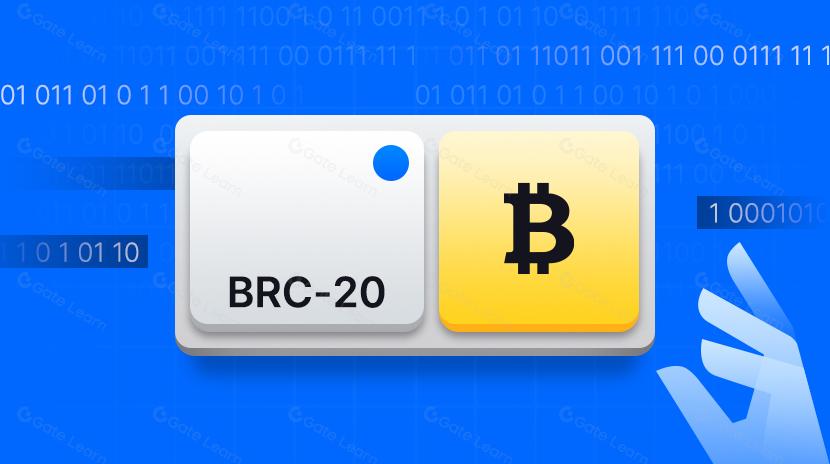Blackrock Bitcoin

What Is the Relationship Between BlackRock and Bitcoin?
BlackRock Bitcoin refers to BlackRock’s participation and connection to the Bitcoin market through products like spot Bitcoin ETFs. These offerings create smoother capital flows between traditional finance and crypto assets, influencing investment channels and market structure.
As one of the world’s largest asset management firms, BlackRock manages vast amounts of capital for pension funds, sovereign wealth funds, and individual investors. By packaging Bitcoin as an ETF, BlackRock transforms on-chain assets into "fund shares" tradable via brokerage accounts, delivering regulated market exposure within an established compliance framework.
How Did the BlackRock Bitcoin ETF Come About?
The BlackRock Bitcoin ETF was launched as U.S. regulatory attitudes toward crypto assets became more open. In January 2024, the SEC approved the first spot Bitcoin ETFs, after which these products began trading and quickly attracted significant investor interest (source: SEC public release, 2024).
This milestone followed years of compliance dialogue and technical preparation, including improvements in data transparency, custodial security, and creation/redemption mechanisms. By mid-2025, BlackRock’s Bitcoin ETF was among the industry leaders in trading activity and assets under management, reflecting increasing acceptance from both institutional and retail investors (trend reference, 2025).
How Does the BlackRock Bitcoin ETF Work?
The core mechanism of the BlackRock Bitcoin ETF involves bundling Bitcoin into tradable fund shares. An ETF functions as a "basket certificate"—you purchase shares that represent real underlying assets.
A spot ETF means the fund directly holds physical Bitcoin, not futures contracts. A custodian ensures secure storage of the Bitcoin; market makers continuously provide quotes on secondary markets to support smooth trading. The creation and redemption process allows large investors to exchange cash or Bitcoin for fund shares or vice versa, keeping share prices aligned with net asset value.
To minimize tracking error relative to Bitcoin’s price, ETFs leverage creation/redemption and market making. If secondary market prices diverge from net asset value, market makers and authorized participants conduct arbitrage trades to bring prices back in line with the underlying asset.
How Does BlackRock’s Bitcoin ETF Impact Market Price and Liquidity?
BlackRock’s involvement primarily impacts "regulated capital inflows" and "price discovery efficiency." As more capital enters through ETFs, buy-side demand becomes more concentrated and trading more standardized, with price signals more accurately reflected in spot markets.
Since their debut in 2024, these ETFs have enhanced Bitcoin’s compliant liquidity pools via increased trading volume and turnover. By 2025, as the products matured in size and participant diversity, market volatility persisted but price formation increasingly relied on transparent data and mechanisms (trend description, 2025).
What Does BlackRock’s Bitcoin ETF Offer Individual Investors?
For users unfamiliar with crypto wallets, BlackRock’s Bitcoin ETF provides regulated Bitcoin exposure within a traditional brokerage account. If you’re accustomed to stocks or mutual funds, the ETF lets you participate in Bitcoin with familiar interfaces, rules, and tax reporting.
It also suits institutions or compliance-sensitive accounts requiring regulated custody and audited reporting. Compared to holding actual Bitcoin, ETFs simplify key management but do not support on-chain transfers or native blockchain utility.
How to Participate in BlackRock’s Bitcoin ETF?
If you have access to U.S. brokerage services and meet local regulatory requirements, you can buy spot Bitcoin ETF shares via your securities account.
Step 1: Verify your country/region’s compliance and tax requirements for U.S. ETFs. Open a compliant brokerage account and complete KYC (identity verification).
Step 2: Review product documents (prospectus), focusing on fees, trading hours, and risk disclosures before placing orders.
Step 3: Set your portfolio allocation and risk controls—such as stop losses and dollar-cost averaging—and regularly review performance and tax implications.
If you prefer native crypto experiences, you can open an account with Gate to buy spot BTC, transact on-chain, and participate in ecosystem activities. Both paths have pros and cons: ETFs offer regulatory clarity and operational familiarity; direct holding provides greater flexibility and access to blockchain utilities.
How Does BlackRock’s Bitcoin ETF Differ From Directly Holding Bitcoin?
BlackRock’s Bitcoin ETF offers exposure through "shares," not on-chain coins. It is designed for traditional account management and tax reporting but does not enable on-chain transfers or participation in decentralized applications (dApps).
Direct holding requires managing your "private keys"—much like safeguarding a house key—enabling autonomous transfers and smart contract interaction but demanding higher security diligence. Cost structures differ: ETFs incur management and trading fees, while on-chain transfers involve network fees and potential slippage.
What Risks Are Associated With BlackRock’s Bitcoin ETF?
BlackRock’s Bitcoin ETF carries several risks. Market risk: Bitcoin price volatility can result in gains or losses. Product risk: ETFs may experience tracking errors, redemption limitations, or liquidity-driven price discrepancies.
Compliance and tax risk: Crypto asset and ETF regulations, reporting obligations, and tax rates differ by jurisdiction—investors must comply with local laws. Operational risk: Direct holders must safeguard private keys; ETF investors should monitor trading hours and costs. Capital safety is never guaranteed—assess your risk tolerance carefully.
What Future Trends Might Emerge for BlackRock’s Bitcoin Initiatives?
BlackRock may drive development of more diverse regulated products in the future—such as multi-asset portfolios, hedging instruments, or systematic investment plans. As global markets evaluate localized spot ETFs, cross-border offerings are likely to become more varied (trend reference, 2025).
Additionally, capital could flow seamlessly between ETFs and exchanges, enabling combined strategies: part of the portfolio for asset allocation and tax efficiency via ETFs; part retained on-chain for native functionality across different use cases.
What Are the Key Takeaways About BlackRock’s Bitcoin Involvement?
BlackRock integrates Bitcoin into familiar financial frameworks by enabling trading via securities accounts with regulated custody and transparent reporting. These products improve capital access and price discovery but do not replace native blockchain capabilities. Choosing between ETFs or direct holding depends on your regional compliance requirements, intended use cases, personal risk profile—and you should always account for volatility and associated costs.
FAQ
Who Is the BlackRock Bitcoin ETF Suitable For?
The BlackRock Bitcoin ETF is ideal for investors seeking exposure to Bitcoin without managing their own private keys. By purchasing ETF shares through a standard brokerage account, you can trade Bitcoin exposure just like stocks—eliminating wallet management complexity. This is particularly suitable for institutional investors and traditional finance users wanting quick allocation to Bitcoin assets.
Will BlackRock’s Bitcoin ETF Price Match Spot Bitcoin?
The price of BlackRock’s Bitcoin ETF is closely correlated with spot Bitcoin but not identical. Factors like market supply-demand dynamics and management fees can result in a premium or discount. Under normal conditions, this premium or discount is small but may widen during periods of high volatility. In such cases, arbitrage mechanisms help align ETF prices with spot values.
What Are the Costs of Holding BlackRock’s Bitcoin ETF?
The main cost is the ETF’s management fee (usually charged annually at a relatively low rate). Additionally, trading the ETF on platforms like Gate may incur commission fees and spreads. Compared to self-custody—which involves wallet service fees or exchange withdrawal/deposit fees—the overall cost of ETFs is generally more transparent and convenient for smaller investors.
Where Can You Buy BlackRock’s Bitcoin ETF?
The BlackRock spot Bitcoin ETF debuted in the United States (under ticker symbols like IBIT) before expanding to other global markets. In some regions, investors can purchase these ETFs via platforms such as Gate that support international asset trading. The specific ETFs available and their trading times depend on local market regulations.
What Is BlackRock’s Core Motivation for Launching a Bitcoin ETF?
BlackRock launched its Bitcoin ETF to meet growing institutional and retail demand for regulated Bitcoin exposure while lowering entry barriers. By providing access via traditional financial products, BlackRock accelerates the transition of Bitcoin from a niche asset toward mainstream adoption—reflecting traditional finance’s increasing recognition of crypto assets worldwide.
Related Articles

In-depth Explanation of Yala: Building a Modular DeFi Yield Aggregator with $YU Stablecoin as a Medium

BTC and Projects in The BRC-20 Ecosystem
